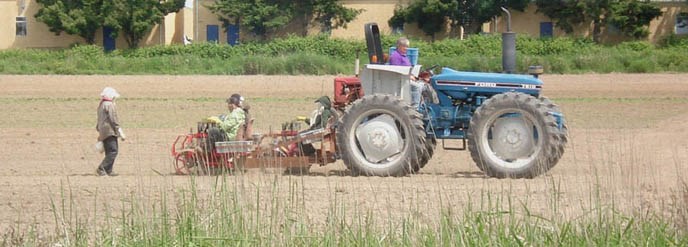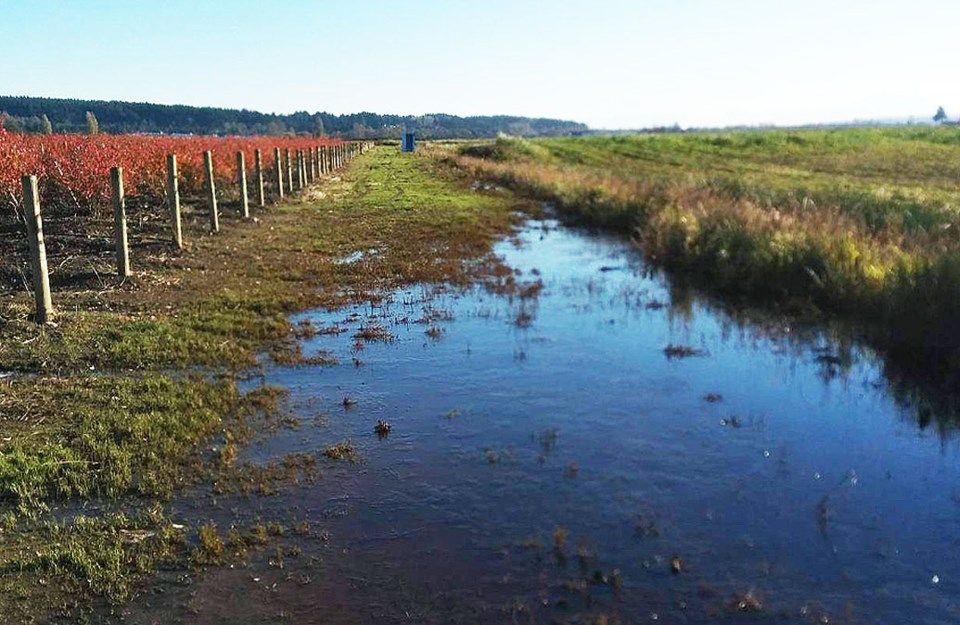A warmer summer could cause problems for Delta farmers’ water supply.
A recent report of city council notes that Environment Canada forecasts a 50 per cent chance of higher than normal average temperatures in the Middle and Lower Fraser Basins through July, which may increase demand for irrigation water.
“It is too early to forecast whether Fraser River salinity levels will remain suitable for irrigation water into the late summer, however, staff will continue to utilize salinity monitors at key irrigation intakes to maximize available water supply,” the report explains.
Despite plentiful annual rainfall, irrigation is needed to supplement Delta’s limited rainfall occurring during July and August, and to reduce salinity in the soil.
Lowland watercourses and ditches make up a large part of Delta’s drainage and irrigation system. Delta uses this system during the summer to move fresh water from the Fraser River throughout Delta to agricultural producers for irrigation. The intakes are affected by the migration of a salt wedge up the river when river flows are reduced.
Delta farmers have said there's a great deal of uncertainty when it comes to the future of the agricultural water supply in the lower Fraser River. When salt accumulates in the soil, it is known as salinization. If salt levels in the soil get too high, the land will be lost to food production. It's a process that is difficult, if not impossible, to reverse.
The Delta Farmers’ Institute has participated in a number of initiatives including studies to get a better handle on the salinity challenge The DFI also launched a multi-year salinity monitoring program in early 2017. The city has also tried to address the salinity issue through projects such as the Delta Irrigation Enhancement Project.

A drainage and irrigation study for the DFI by UBC noted interviews revealed that 76 per cent of farmers currently experience drainage and/or soil salinity problems.
“Less permanent measures that are used to drain fields include mole drains, shallow surface drains, and subsoiling, while more permanent measures include drainage tiles, laser levelling, and open ditches. It was evident from the interviews that the farming community in Delta is very diverse, with different seasonal water management needs, farming experience, and resources, illustrating the improbability of developing a ‘catch-all’ drainage solution for the region.”
That study goes on to say, “The primary concern is that despite substantial efforts to better understand drainage management problems and develop materials for farmers to utilize this information, on-farm drainage problems seem to be increasing and could increase even further as climate patterns shift.”



